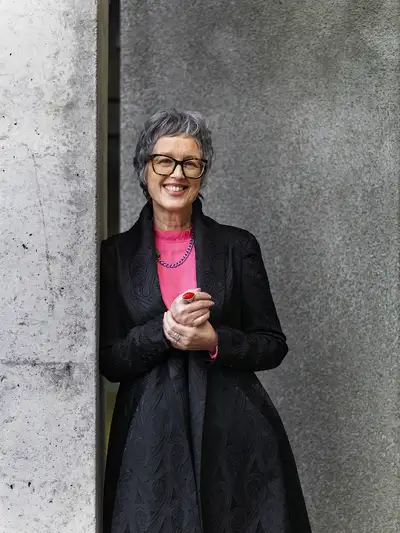Nau mai, haere mai. Welcome to the fourth issue of Rangahau, a publication produced by Massey University Te Kunenga ki Pūrehuroa to profile and celebrate the breadth and impact of research currently underway across our university.
In this issue, I am delighted to share a snapshot of the excellent research at Massey that specifically addresses the United Nations’ Sustainable Development Goals (SDGs).

Professor Giselle Byrnes – Provost
This issue profiles more than 30 academics and their teams who are progressing research that advances one or more of the SDGs. Not only do our researchers have wonderful stories to share, but they are also making meaningful and positive contributions to our communities in ways that clearly align with and are inspired by the United Nations' commitments.
A matrix of 17 interlinked global objectives, the SDGs provide a blueprint for us all to work towards achieving a better and more sustainable future. Established in 2015 by the United Nations General Assembly, the SDGs are intended to be achieved by 2030.
As part of our new Massey University Strategy 2022–2027, we are maintaining our strong Foreword focus on supporting our world-leading areas of research that align with and support the United Nations’ SDGs, alongside ensuring that we are operating in environmentally sustainable ways that support our ambition to be carbon neutral by 2030.
Massey University Te Kunenga ki Pūrehuroa values sustainability as one of the key commitments that will guide our future development, grounded in the foundational promise of Te Tiriti o Waitangi. Our commitment to sustainability and climate action sits alongside entrepreneurship, civic leadership and global engagement to bind together our four strategic pou (pillars): te pou rangahau (research), te pou ako (teaching), te pou tangata (people) and te pou hono (connections).
Our university’s commitment to working towards being a Tiriti o Waitangi-led institution infuses and informs everything we do. We are excited and energised by this goal, noting that while research is a key area where we can work to realise this aim, such ambition comes with huge responsibilities.
At Massey, we pride ourselves on the importance we place on research both as a driver of new knowledge and as a means by which to improve lives, lift social and economic wellbeing and nurture and care for our environments. Our natural resources are finite, and we need to look after them.
We are justifiably proud of Massey’s unrivalled record of research excellence in subject areas vital to this country’s social and economic wellbeing reaching back almost 50 years and in the creative arts more than 130 years. These areas of research strength include veterinary science, land and food-based research, nursing and public health, finance, key areas of the social sciences, and creative arts and design. Our research in these fields sits alongside and supports our capability to deliver a diverse distance and online-teaching portfolio. We celebrate this diversity and are inspired by our name, Te Kunenga ki Pūrehuroa; from inception to infinity. Here at Massey, we say that we are not simply defined by what we do, but by how we do it.
Finally, we believe that research not only defines what a university does but that it is also critical to helping us all to understand the world in which we live. While universities are designed to prepare graduates for the world of work, they are also sites of critique in the context of public policy and social and economic debates. Universities are large and influential institutions in our society and they produce graduates who will go on to create more cohesive, productive and tolerant communities.
The critical role of university-based research and expert advice has been highlighted during the Covid-19 pandemic. Over the past two years, university researchers have been invaluable in providing advice to the government and the public alike on how to navigate and understand the uncertainty of our present world. University-based academics, in their dual role as researchers and teachers, play an active role in the process of making our democracy (and our environment) stronger through education, the application of research and new knowledge creation. In an era where evidence-based research and rational thinking are frequently dismissed as ‘fake news’ or 'alternative facts’, we need our experts now more than ever.
I want to thank all those researchers who agreed for their work to be shared in this volume and especially for their time and their commitment to making a difference in the world.
I invite you to read on, explore and enjoy.
Tihei mauri ora!